Shūji Sano
Birth : 1912-10-20, Tokyo, Japan
Death : 1978-12-21

Takagi
A model must cope with the stress of fame after a marketing executive transforms her into a sports celebrity.
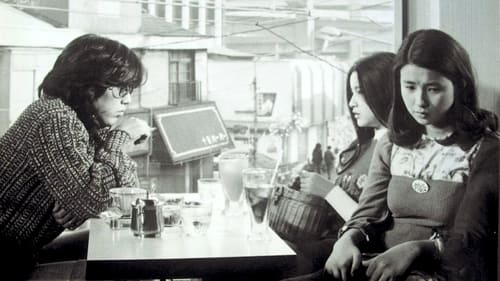
Drama about young people in the Japanese rock scene starring the lead singer of Japanese rock band The Tigers (1966-1971, 1981-1983).

Coming of age/high school sports drama.

A film about the construction of the Kasumigaseki Building, the first high-rise building in Japan.

Hirata
Kitagawa is an engineer charged with construction of a gigantic tunnel through the Japan Alps for the transportation of equipment in the building of the massive Kurobe Dam. The tunnel crosses an earthquake fault and Kitagawa is beleaguered not only by cave-ins and flooding, but by strife between management and the workers's union. Adding to Kitagawa's stress is the knowledge that as his attention is pulled inexorably toward the tunnel construction, his youngest daughter is dying from leukemia.

Hiroshi Yamamura
Japanese youth film.

Jiro's father
Easily bored, but still innocent and naive countryside girl (Mako Midori) discovers partying in Tokyo is a ton of fun. Yakuza-to-be (Ichiro Araki) is an acquaintance who tries to rape her, and the typically bland but very-good-here (Hayato Tani) the first boyfriend. Director Yasuo Furuhata (his first picture) lets his camera roll in trendy clubs amongst partying youngsters in a way that could've been out of 60s England or a Nikkatsu film if it wasn't shadowed by dated 60s Toei conservatism.The resulting film is a bit confused, either a rebellious youth tale chained by moral concerns, or something conceived as a morality tale trying to break free from its chains.

An uplifting drama about the bond between a group of high school seniors and their kind-hearted teacher, Mr. Yabuki. Faced with the rigors of growing up in modern times, students often look to Mr. Yabuki for advice and guidance. But when Mr. Yabuki’s career is threatened as a result of a false accusation from the school’s PTA, the students band together to stand up for their beloved teacher and help him to save his good reputation and job.

Japanese comedy film.

Japanese drama.
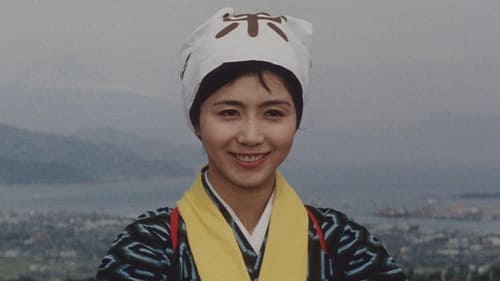
Ryosuke Mishima

Young lord Saburo Nobuyasu struggles to find comfort in life. His arranged marriage to Tokuhime, daughter of one-time family enemy Oda Nobunaga, provides little happiness. His manipulative mother adds further complications through her constant interference and attempts at defeating the Nobunaga family.

Doctor Hanamura
When a wealthy, selfish family decides to take care of an elderly hobo who collapsed near their home, they are beset by visits from his numerous friends.

The story tells of Tsuchiya, a university professor and a widower who is in love with a widow who runs a small restaurant, and his son is in love with a runaway girl who turns out to be the leader of a religious sect. Kusano is the henpecked proprietor of a rice biscuit shop who dreams of owning a bird and dog shop and his daughter is in love with a boarder, employed by the private detective agency searching for the runaway girl. The agency head has his own dream of arranging thirty marriages and has already accomplished twenty-seven. Tatsumi is a newspaper reporter who dreams of a big scoop to enable him to marry a girl TV producer and his friend a mountain climbing enthusiast who dreams of joining a Himalayan expedition but is opposed by his wife. His love of the mountains is shared by a boarder in their home and by a fishmonger's son.

Managing director
A father curries favor with his bosses to further his career, but his wife has lost faith in him. She returns to her family home while they rent out their house during the summer to pay off their mortgage, and there she meets a lonely old man...

Alongside Tokyo's Sumida River is a ragpickers' settlement known as Ant Village. One night, a young Catholic girl, Satoko Kitahara, who has been baptized under the name of Maria, comes to offer her services. However, Ant Village is not just an ordinary vagrants' community but a fine autonomous organization, and as the municipal authorities have long been demanding that the people of Ant Village leave the site, Satoko is utilized to publicize the Village and win public sympathy. While being utilized in this manner, Satoko is nevertheless glad to be able to help the people of Ant Village, especially the children, and when the summer vacation comes she decides to take the children on an excursion to Hakone. To raise funds for this purpose she becomes a rag-picker herself.

The story follows Oshino, a geisha who is trying to start a new life with a lover who is a painter. However, her past filled with debts and pimps catches up to her.
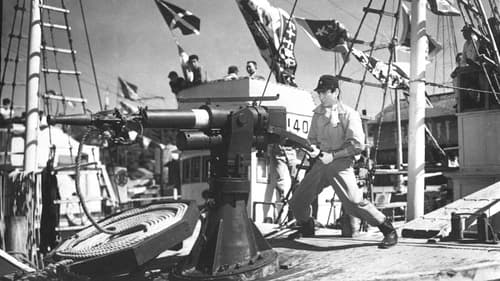
Captain Gondo
A film about the rivalry between Captain Gondo and the harpooner Yosuke Yamagami, working on the best whaling ship Hayabusa Maru. One day they will have to face a giant, monstrous whale.

A humble page fathers a child by the daughter of a clan official and is banished. Years later, the child, now a stable boy, is reunited with his father, but feudal codes threaten their happiness. Uchida’s poignant masterpiece condemns the inflexible class system and launches an indictment of values that favor symbolic objects over human life. The film’s focus is on character rather than swordplay, and charged performances—especially child actor Motoharu Ueki—add to the emotional power.

Shochiku Production on typhoon

Shida Bunzo
Poor social conditions badly affect the relationship between a married couple, when the husband, who is desperately searching for work, fails to notice the terrible sacrifices made by his wife when she accepts a job at a local inn.

Shinsaku was once a renowned playwright, has now been left behind by journalism and is living a lethargic life in Oiso. His family is concerned with Shinsaku regaining his old vigor as a writer and Sakie, his daughter, finding a suitable match, while the family is struggling with the losses of war.

Mr. Shinohara
A young girl moves to Tokyo and endures the rivalries between other high school girls of varying cultural and economic backgrounds.
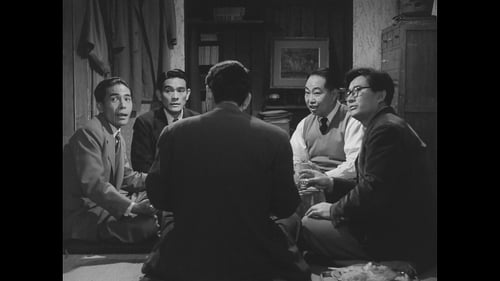
Ryotaro Namiki
A husband and wife's pet peeves and minor irritations escalate into major rifts and animosity.

Takasu
Mokichi is the widowed father of three daughters, with whom he lives on the premises of a temple since the war. In the film all three daughters become involved in some sort of complicated relationships. The sisters and their attached Men are deliberately designed as allegorical figures on the changing social conditions. A wonderfully funny, sometimes droll comedy between Nara and Tokyo, Adagio and Allegro, Yesterday and Today - in search of a morning.

Three young women make a suicide pact, but they grow to have a better understanding of themselves.
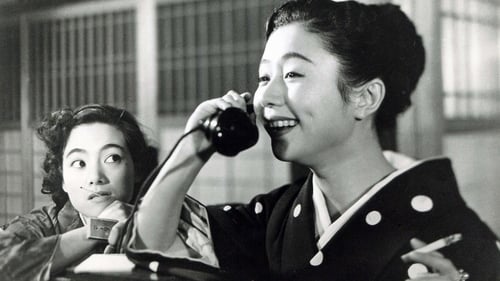
Mito
An Inn at Osaka, rarely seen outside Japan, follows the story of an insurance company executive from Tokyo, Mr. Mito, who is demoted to the Osaka office. He takes a room at a small inn and tries to rebuild his life. Notable for its exquisite framing and cinematography, An Inn at Osaka allows its complicated plotlines to disappear behind the minutiae of penury and humiliation that Mito and others suffer during the post-war economic and social reconstruction.
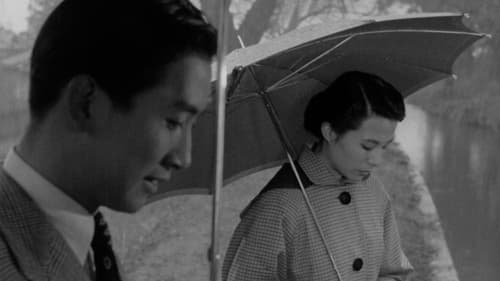
A sad and troubled man finds a new job five years after the end of WWII, where he writes love letters for other people.

Yusaku Araki
It chronicles the experiences of a neighbourhood doctor, whose taste for tonkatsu (a popular Japanese dish, similar to a pork schnitzel) earns him the nickname ‘the pork cutlet prince’ (‘Tonkatsu Taisho’, the film’s Japanese title) from the affectionate residents of the tenement in which he lives. When a local hospital, run by a female doctor, plans to expand, the future of the tenement is called into question.
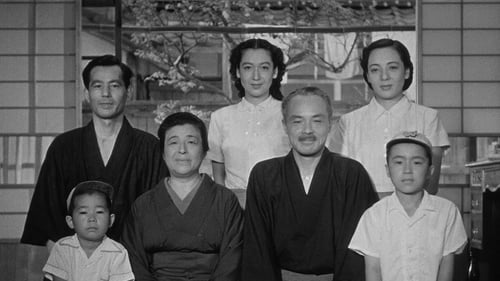
Sotaro Satake
A 28-year-old single woman is pressured to marry.
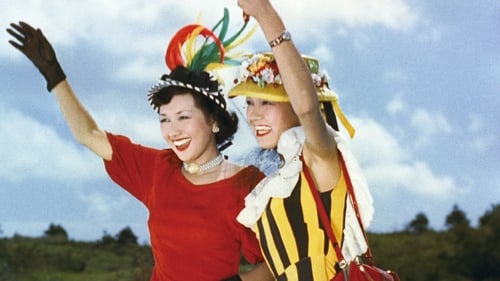
Haruo Taguchi
A girl who'd left her hometown for the exciting adventure of the big city returns home years later for a visit, soon somehow causing scandal.

Also known as Crazy Uproar.

Melodrama that lovingly portrays working people who live in poverty but righteously. Kosaburo Yoshimura, the master of "women's films," cast Yasuko Fujita, an unknown newcomer, in the leading role for this masterpiece about the joy of love. The Yoshikawa family is a typical small town family. With only the father's and daughter's salaries to support the family's six members, life is not easy.

Keizo Ishizu
A matchmaker looks to unite a young woman from a wealthy Tokyo family with the humble owner of an auto garage.

Shuichi Amamiya
Tokiko is a mother patiently waiting for her husband's return from the war when her 4-year old son becomes ill. She takes him to the doctor for treatment but has no way of paying. She resorts to prostitution. One month later her husband returns from WWII to find his desperate wife, who tells him the truth. Together they must deal with the consequences.

Waiting woman

横山(楽団員)

Japanese war movie.

Captain
Hisshoka is a 1945 Drama film directed by four Japanese directors.

Kaneko
A widow raises her sickly son to be strong enough to join the army and fight on the front lines.

A nurse's tale of self-sacrifice during wartime. The title is borrowed from a patriotic song made popular by singer Hamako Watanabe during the Second Sino-Japanese War.

Pretty Oshige is deceived by her first love. After this, she lives a hard lifestyle, working at a number of jobs. Her only pleasure is her nephew, who eventually becomes a merchant marine. When Oshige meets her old love ten years later, she is able to forgive him and even thank him for the path her life has taken.

An older sister and brother (Mieko Takamine and Masayoshi Otsuka) come to visit their grandfather (Takeshi Sakamoto) who lives deep in the mountains. As for their parents, father was serving in the South Seas and mother died of illness on her way home. So, the brother, who is still young, will live alone with his grandfather whilst the sister goes away to study to become a teacher.
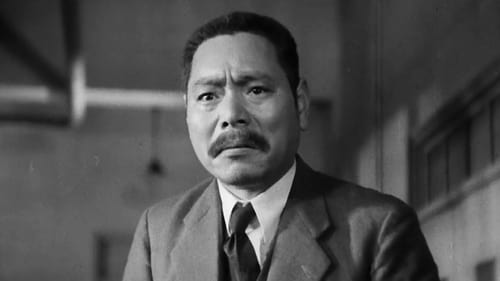
Ryohei, the son
Shuhei Horikawa, a poor schoolteacher, struggles to raise his son Ryohei by himself, despite neither money nor prospects.

A hostile Chinese nurse (Yamaguchi) who works in an orphanage is won over by the care and commitment of the Japanese doctor (Sano) who treats her wards. Disease outbreaks and family obligations, however, threaten to torpedo their budding romance.

In the movies of those times, you can see young boys in the company scene often. Those boys were called kyuji (給仕), which means “waiter” literally. They are doing odd jobs in the company including serving tea, ushering visitors, buying tobacco, etc. Ordering lunch for the individual requests was also an important job. Those boys were hired often as soon as they graduated from elementary school.

This film was mainly shot in the Japanese skiing resort Hokkaido in 1937-38 and was intended to create support for the coming winter olympics of 1940 in Japan which however were cancelled because of the Japanese-Chinese war. A Japanese production, it was nevertheless made with German involvement in the form of skiing champion Sepp Rist and celebrated cinematographer Richard Angst (who also contributed to the script). Both had regularly worked with the inventor of the mountain film genre, Dr. Arnold Fanck, who had helmed the German-Japanese co-production "Die Tochter des Samurai", also shot by Angst, the year before. Angst apparently stayed in Japan until mid-1939 when he returned to Germany, carrying this film with him. Angst submitted it to the German censors later that year, but for reasons unknown to me it took three more years before the film was finally shown in Germany under the name "Das heilige Ziel" (The Holy Aim). (Karargara)

Shigeo Tanikawa
Shigeo is an aspiring writer living with his girl friend Minako and hoping for success and a better tomorrow every day. Both live on what Minako earns from working in a café. Shigeo is not happy with the situation and neither is his family who do not approve of Minako. Especially his uncle tries to convince him to leave Minako, even using his influence behind the scenes. Things start to change when Shigeo's sister pays the young couple a visit, being the first member of Shigeo's family to actually get to know Minako in person.

A man and his girlfriend work for a cosmetics company, but would like to open their own store. The company is planning to send someone to Paris for special training and the man tries to get the general manager to send his girlfriend since this training would help them to start their own business. The general manager selects another woman and the trouble begins.
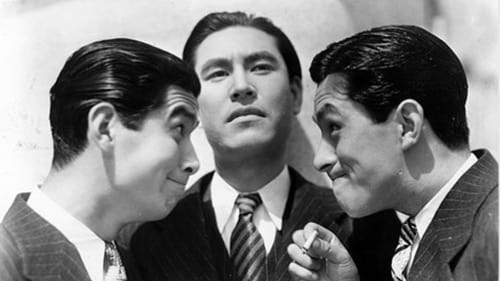
Shûji Kamura
Three men vying for the same job end up chasing the same girl in this comedy-drama from noted Japanese director Yasujiro Shimazu.

Kyôsuke
Yuki is a young, single mother supporting herself and her son, Haru, with a job as a bar hostess.

Naomichi
A penniless orphan loses the woman he loves, when her family arranges a marriage to a wealthy playboy. He believes she was blinded by greed, and becomes a miser.

Seki
During college military training exercises, the bond between two friends and athletic rivals is tested when one of them becomes involved with a woman who may be a prostitute.

Okada
A professor, Komiya, and his bossy wife, Tokio, are to look after Setsuko, their high-spirited niece from Osaka. Despite being a minor, Setsuko is a liberated woman who does whatever she wants, including smoking. She even convinces Koyima to take her to a geisha house. When she gets rather tipsy, the professor calls Okada, one of his students, to take her home. The wife becomes suspicious of Setsuko when she sees Okada bringing her home.

Ono
Three men fall in love with the same young girl who works in a tonkatsu restaurant in the Shitamachi district of Tokyo.

Taki
Episode in the life of a composer of a popular Japanese song.

The eldest daughter of a noble family is in love with an aviator while being courted by a fellow aristocrat she thinks is a dullard. This part is told from the perspective of Akemi.








































